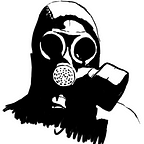Syrian Civil War
The unrest began in March 2011 with nationwide protests against president Bashar al-Assad’s government, which responded with deadly crackdowns. The conflict gradually morphed from peaceful protests to armed rebellion.
The armed opposition consists of various groups that were formed during the course of the conflcit, including the Free Syrian Army and the Islamic Front. In 2013, Hezbollah entered the war in support of the Syrian army. In the east, the Islamic State of Iraq and the Levant (ISIS), a jihadist militant group in Iraq and Syria which was initially linked toAl-Qaeda in Iraq (AQI), made rapid military gains, eventually turning against the FSA and becoming an independent party of the conflict.
The Syrian government is upheld by military support from Russia, which was expanded in the winter of 2013-14, and Iran, while Qatar, Saudi Arabia, Turkey and United States transferred weapons to the rebels. The U.S, Britain and European and Arab states have declared a readiness to support the mainstream Syrian opposition. The international response to the conflict has been described as a proxy war due to the nature of this involvement.
By July 2013, the Syrian government was in control of approximately 30-40% of the country’s territory and 60% of the Syrian population. A late 2012 UN report described the conflict as being “overtly sectarian in nature”, between mostly Alawite government forces, militias and other Shia groups fighting largely against Sunni-dominated rebel groups, though both opposition and government forces denied that.
According to the United Nations, the death toll surpassed 100,000 in June 2013, and reached 120,000 by September 2013. In addition, tens of thousands of protesters, students, liberal activists and human rights advocates have been imprisoned and there are reports of widespread torture and terror in state prisons.
International organizations have accused both government and opposition forces of severe human rights violations. Chemical weapons have been used many times during the conflict as well. The UN and Amnesty International’s inspections and probes in Syria determined both in 2012 and 2013 that the vast majority of abuses, as well as the largest in scale, were being committed by the Syrian government.
The severity of the humanitarian disaster in Syria has been outlined by UN and many international organizations. More than four million Syrians have been displaced, more than three million Syrians fled the country and became refugees, and millions more were left in poor living conditions with shortages of food and drinking water.
